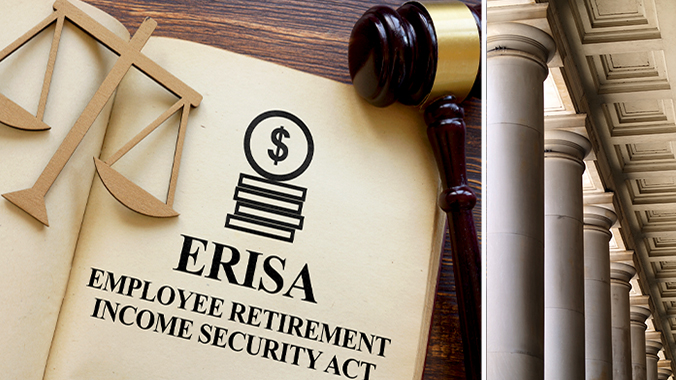Preserving Privilege in a Digital Age: Waiver Risks, Clawback Tools, and AI Implications in Litigation



2 hour CLE
Get this course, plus over 1,000+ live webinars.
Learn More
Program Summary
The attorney-client privilege is essential to fostering open and honest communication between attorneys and their clients. However, in today’s landscape of rapid digital communication and widespread use of electronic messaging platforms, both attorneys and clients must remain vigilant to avoid unintentional waivers of attorney-client privilege and work product protections. This program will examine key strategies for safeguarding privileged information, including the use of clawback agreements and Rule 502(d) orders, the application of the Kovel doctrine in relationships with third-party consultants, and how conduct between parties affects the applicability of the common interest privilege and functional equivalent doctrine. We will also address the unique privilege challenges posed using artificial intelligence, including selecting appropriate AI tools, implementing technical safeguards, issuing AI usage guidelines, and managing privilege concerns related to AI-generated prompts in the discovery process.
Key topics to be discussed:
- How tools like clawback agreements and Rule 502(d) orders help protect against waivers
- Whether the Kovel doctrine may apply to relationships with third-party consultants and what factors govern its application
- How parties’ course of conduct determines whether the common interest privilege or functional equivalent doctrine apply to prevent waivers
- Protecting privileged Information when using AI tools
- Privilege considerations related to AI prompts in the discovery context
This course is co-sponsored with myLawCLE.
Date / Time: September 10, 2025
- 1:00 pm – 3:10 pm Eastern
- 12:00 pm – 2:10 pm Central
- 11:00 am – 1:10 pm Mountain
- 10:00 am – 12:10 pm Pacific
![]() Closed-captioning available
Closed-captioning available
Speakers
 Ellen P. Blanchard | Norton Rose Fulbright US LLP
Ellen P. Blanchard | Norton Rose Fulbright US LLP
Ellen Blanchard is Senior Counsel in the Global Cybersecurity and Privacy group of Norton Rose Fulbright working with companies managing and protecting the data that is critical to their business including information governance policies and procedures, data minimization and storage, cybersecurity, privacy and across all phases of discovery and the EDRM model. Ellen has represented clients from a variety of industries in complex commercial litigation and government investigations, including Second Requests, involving securities, antitrust, healthcare, cybersecurity, telecommunications, and IP issues. Ellen uses her knowledge of the interconnections between legal and technology to work with clients on all phases of the EDRM continuum from records management to trial. She provides strategic advice that balances risk management with practical guidance for the business particularly in the space of information governance and Artificial Intelligence. Prior to joining Norton Rose Fulbright, Ellen served as Director of Discovery and Information Governance at an international telecommunication company where she was responsible for developing the strategic vision for discovery and providing leadership in managing the company’s data. She led a team that was responsible for proactively managing electronic and document discovery for active litigation matters, including complex and high-stakes disputes such as mergers, government investigations, cyber investigations, and class actions. She successfully managed the team responding to the regulatory requests stemming from the T-Mobile Sprint merger approval. Prior to T-Mobile, Ellen was a litigator at Boies, Schiller & Flexner and Associate GC and Director, eDiscovery Consulting at Evolver Legal Services. A recognized thought leader in the industry, Ellen regularly speaks on panels and participates in Podcasts on the latest topics in the industry including data minimization, 2nd Requests, and Artificial Intelligence.
 Andrea L. D’Ambra | Norton Rose Fulbright US LLP
Andrea L. D’Ambra | Norton Rose Fulbright US LLP
Andrea D’Ambra is a recognized leader at the intersection of technology, data law, and litigation risk. A partner in the New York office of Norton Rose Fulbright and a member of the firm’s Global Executive Committee, Andrea spearheads the firm’s outreach to technology sector clients across the United States and leads the firm’s U.S. eDiscovery and Information Governance practice.
Andrea advises clients on managing information risk across litigation, regulatory investigations, and cybersecurity incidents, with a focus on cross-border discovery, multinational data privacy compliance, and emerging AI-related legal challenges. She has extensive experience navigating complex foreign data protection laws, defending against regulatory inquiries, and designing defensible information governance frameworks for global organizations.
Highly regarded for her thought leadership, Andrea serves on the Board of Directors for The Sedona Conference and is a founding member and board member of the International Data Law Association. She is also an active participant in the Sedona Conference’s Working Group 13 on Artificial Intelligence, where she contributes to the development of best practices for the responsible use of AI in legal processes.
Andrea frequently works with technology sector clients, providing strategic advice that integrates legal risk management with business objectives. She is known for her pragmatic, solution-oriented counsel and her ability to help clients address cutting-edge legal challenges in an increasingly complex global regulatory environment.
She is a Certified Information Privacy Professional for both the European Union (CIPP/E) and the United States (CIPP/US), as well as an Artificial Intelligence Governance Professional (AIGP) through the International Association of Privacy Professionals (IAPP).
 Patricia E. Antezana | Reed Smith LLP
Patricia E. Antezana | Reed Smith LLP
Patricia focuses on managing e-discovery. With a background in general litigation, including commercial matters, business torts and product liability defense, Patricia brings a wealth of experience resolving a wide range of discovery issues. She advises clients regarding concerns that arise prior to litigation, including legal holds and preservation, and throughout litigation, including early case assessment, ESI protocols, collections, review, privilege issues, and productions.
Patricia has been involved with all phases of litigation, including management of large-scale discovery, dispositive motions, trial preparation and alternative dispute resolution. She has coordinated electronic and hard copy record collection and managed large-scale review projects in numerous complex litigation matters, working closely with case teams to prepare comprehensive and defensible collection and review strategies.
Additionally, Patricia has written and spoken extensively on various discovery topics.
Agenda
I. How tools like clawback agreements and Rule 502(d) orders help protect against waivers | 1:00pm – 1:25pm
II. Whether the Kovel doctrine may apply to relationships with third-party consultants and what factors govern its application | 1:25pm – 1:50pm
III. How parties’ course of conduct determines whether the common interest privilege or functional equivalent doctrine apply to prevent waivers | 1:50pm – 2:00pm
Break | 2:00pm – 2:10pm
IV. Protecting privileged Information when using AI tools | 2:10pm – 2:40pm
- Technical protections
- Selecting specific AI tools
- AI use guidelines
V. Privilege considerations related to AI prompts in the discovery context | 2:40pm – 3:10pm
More CLE Webinars
Trending CLE Webinars








Upcoming CLE Webinars































































